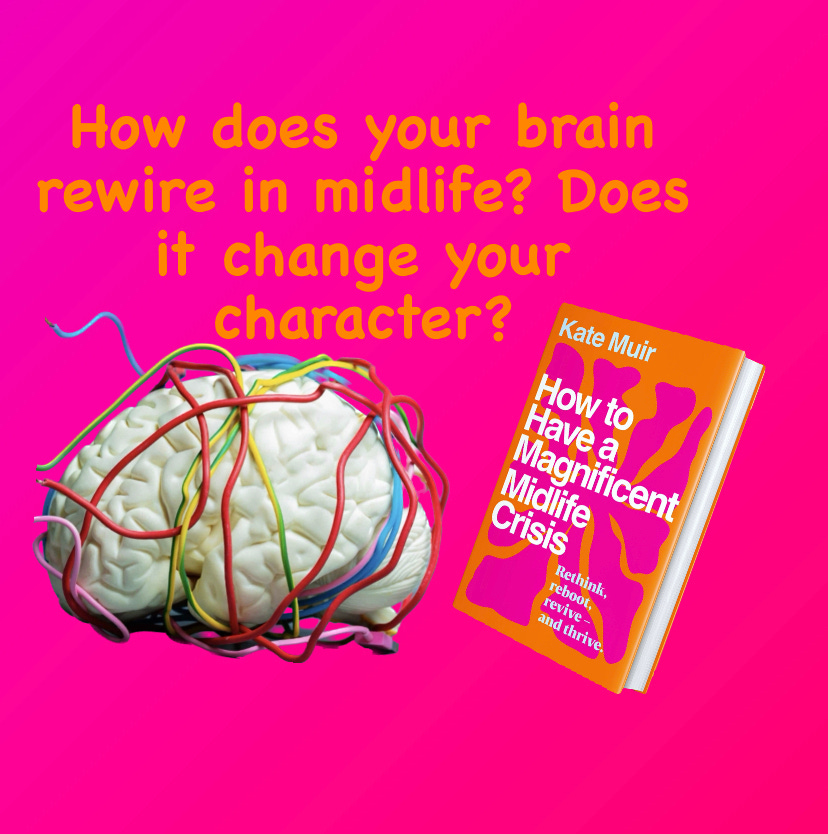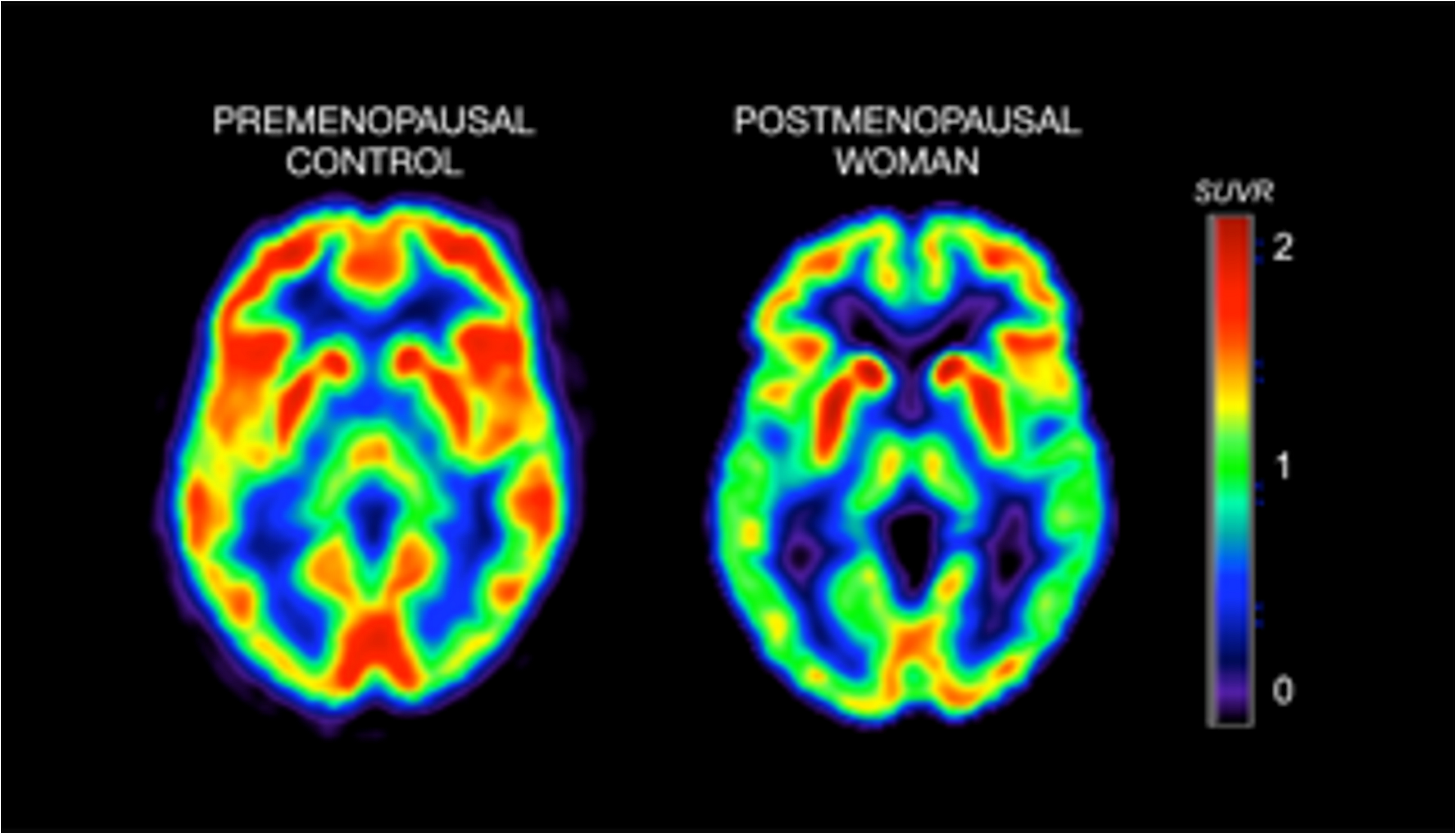Why has no-one told women that their brains rewire up to three times in life? Why aren’t we celebrating our miracle of plasticity? You didn’t hear about women’s brain changes in Biology GCSE when you were mostly dissecting frogs, but the latest science shows that the female brain rewires at the three Ps – puberty, pregnancy and perimenopause.
Those are also times of chaos, which can have a profound effect on our mental health. Thanks to our hormones changing, we undergo neurological deconstruction - and rebuilding. The midlife crisis is also our neurological reboot. Some of us become whole new characters…
Once you understand this, it explains a lot about midlife madness. The Great Rewiring only happens once to men, at puberty, and we’ve heard loads about that. We know teenage boys and girls undergo synaptic pruning – when hormones change, doors are slammed, and the brain eliminates connections between neurons to make adolescents more efficient in adult life. In pregnancy, our brains rewire to be more emotionally astute.
But no-one bothered until recently to look at the massive neurological change in women around menopause in our forties and early fifties – and it’s crazier than we suspected, because your brain’s fuelling system goes haywire when the hormones estrogen and progesterone leave the building.
Check out this graph of brain biomarkers below from Professor Lisa Mosconi. The female brain’s energy mechanism is fuelled by glucose (dark pink), and the hormone estrogen influences the transport of glucose. So when estrogen starts falling in perimenopause, the blood flow (blue) increases to women’s brains to compensate – it’s a bit like a rail replacement bus service, not always running smoothly.
Those changes in glucose metabolism and cerebral blood flow drag on over five or more years, from perimenopause to post-menopause, and they can impact memory and executive function. In real life, that can mean brain fog reported by 73 per cent of women – leaving your keys in the fridge, forgetting the name of your dog, or becoming paranoid about driving on motorways.
I talked to one midlife woman who was so distracted she drove her car into a service station, started the pump, opened her back door, and poured all the petrol into the back seat. It’s funny, but not funny. Those outages pass, eventually, and can often be swiftly eliminated by women getting their natural hormones back with HRT.
We’ve only really understood perimenopausal rewiring in the last few years, thanks mostly to the work of Dr Mosconi, a neuroscientist at Weill Cornell in New York, and the author of The Menopause Brain (which I recommend). The book and her an article in Nature in 2021 changed the way I understood midlife and the menopausal change forever. She showed not just the biomarkers, but brain scans that revealed how the energy used by the normal female brain went down around 30 per cent from pre-menopause to post-menopause. Below is a scan of the same woman aged 43, and then 53, and you can see the red energy levels lowering.
But all is not lost. As I said, the brain sorts out its fuel for the transport of glucose eventually. Meanwhile grey matter - your brain’s information processor - goes down in perimenopause – and then returns at a higher level (again, biomarker graph above). This may well explain why in the past we became wise women, witches or Ruth Bader Ginsberg in later life.
But your white matter - connective wiring - just seems to go down. Who knows where all this ends, as no-one has done the studies tracking female brain biomarkers over decades, but the galvanic change surely has something to do with our memory lapses, our changing tolerance of other people’s foibles, and the eruption of midlife crises.
What’s most fascinating is that women taking transdermal estrogen HRT (the safest stuff according to the NHS) had far less damage to their white matter than women going through menopause without any interventions (Read more.) Estrogen keeps the brain in business. Plus it’s worth knowing that white matter damage can be a sign of incoming Alzheimer’s disease – I’ll be writing another Substack on How to Avoid Alzheimer’s soon.
What we do know is that midlife is a time of seismic neurological change, that estrogen is brain-protective and keeps ‘happy’ serotonin levels up. As Dr Mosconi told me, ‘Menopause is a renovation project on the brain’, which most women cope with incredibly well, and even make a comeback. But she is also studying the postive effects of estrogen replacement on brain health. Make sure your renovation goes smoothly – and that you understand how hormone replacement can help. Let’s prioritise women over frogs in future scientific research…








Ps. I responded to your post on LinkedIn. I’m keen to read your post regarding Alzheimer’s as my Dad has it, but also due to my own brain surgery in my 20s to remove my left hippocampus as a resulted of hormone related epilepsy.
Never seen a clearer more fascinating explanation